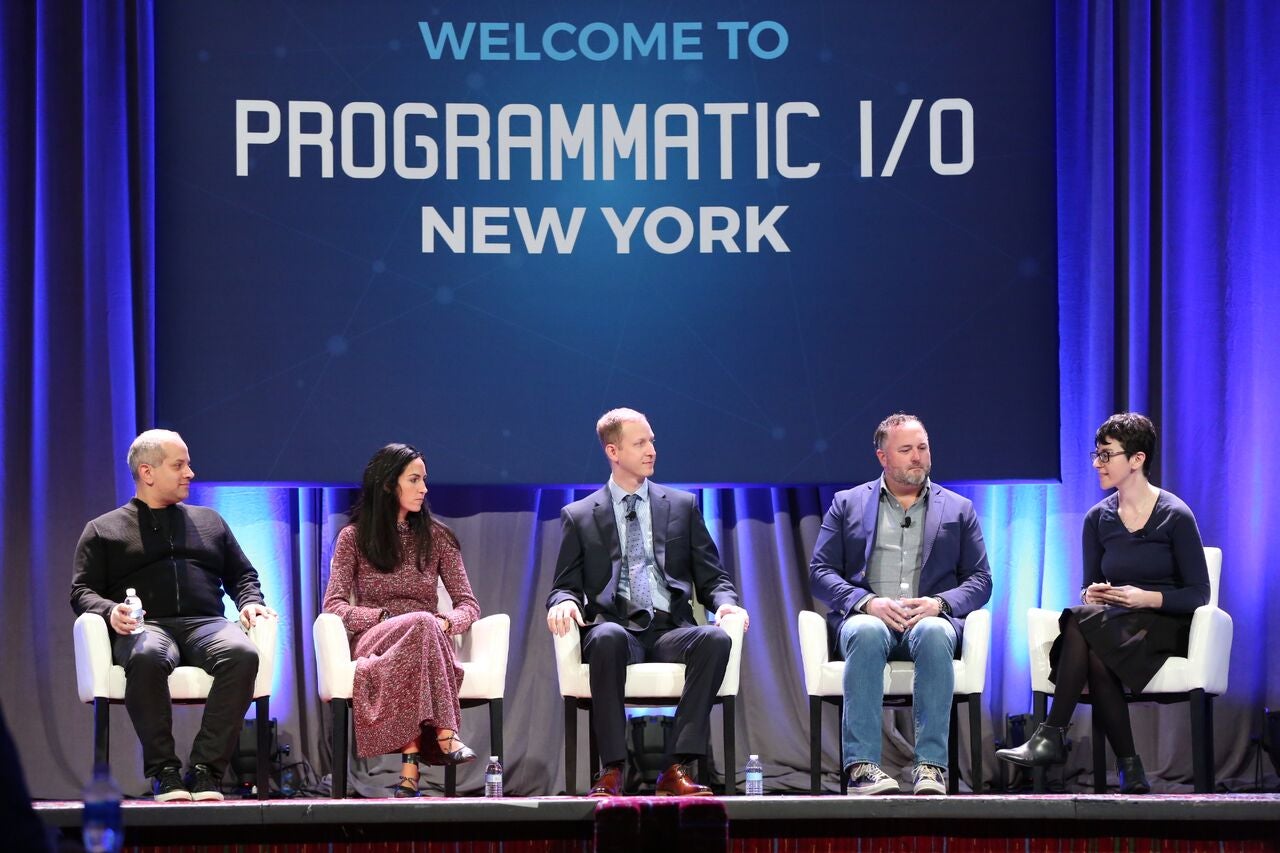Brands, agencies, publishers and vendors agree that while the industry is rife with ad quality issues, programmatic isn’t the culprit.
“Programmatic is not the problem,” said Shaune Kolber, programmatic creative and ad fraud manager at Dell, at AdExchanger’s Programmatic I/O conference in New York City on Thursday. “It’s a way of buying. It’s not supposed to be remnant inventory.”
Marketers have occasionally viewed programmatic as a way to cut costs rather than trying to figure the safest way to buy it, said Mac Delaney, SVP of media investment and strategy at Merkle. That’s led them to choose the cheapest path, rather than the most secure.
“There has always been the safest path in programmatic, but not every marketer was interested in that,” he said. “The agency has always been compensated and looked favorably upon when they can deliver cheap CPMs.”
But that’s changing for some brands. Dell is willing to pay a premium for quality programmatic inventory, Kolber said. And looking for quality doesn’t always mean sacrificing on price, said Jonah Goodhart, CEO and co-founder of Moat.
“In New York City, there’s great pizza for a dollar, so it’s not to say you can’t have low cost and high quality,” he said. “You’re willing to pay more for quality, but that doesn’t mean you have to pay more just because it’s higher quality.”
Part of the misconception around programmatic and ad quality comes from agencies, which haven’t done enough to educate brands on how to maximize quality while lowering costs, Delaney said.
“I’ll admit I haven’t done nearly enough to educate our people on what the true definitions of ad fraud are,” he said. “The future role of the agency is going to be less built on negotiating CPMs [and] more about, ‘Can you future-proof my business and build me an ad stack so I can buy inventory safely?’”
Publishers can play a role in brand education too. While industry initiatives like Ads.txt take a tactical approach to stamping out fraud, publishers should build direct relationships with brands to help them buy quality programmatic inventory that meets their KPIs, said Sara Badler, director of programmatic at The New York Times.
“We want to help clients and marketers understand their needs [around] KPIs, viewability and analytics,” she said. “The education is huge. It’s the consultancy role of seeing what the client wants, making sure you’re on a trusted platform and you understand the capabilities.”
Panelists agreed that pointing fingers at each other or programmatic as a buying method for enabling poor ad quality isn’t a productive solution.
“We need more human involvement and to take an active role without pointing fingers,” Goodhart said. “[Once we get] that settled, how do we continue to substantively solve these issues?”
And as the controllers of the industry’s purse strings, brands can start a movement toward better ad quality by changing the way they spend, Kolber said.
“We can vote with our dollars, but we have to do something,” he said. “We need to go to partners and say, ‘These are the standards we expect. If you don’t meet them, we’ll move our dollars after X time period.’ To look to the agency to solve it is not going to work.”















